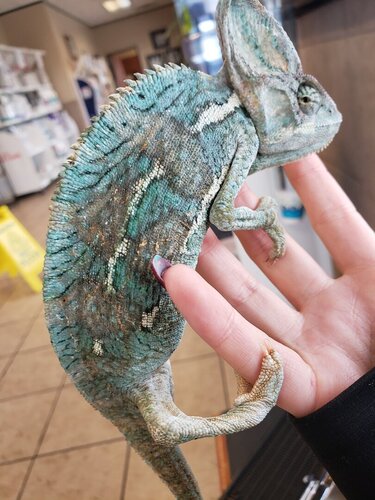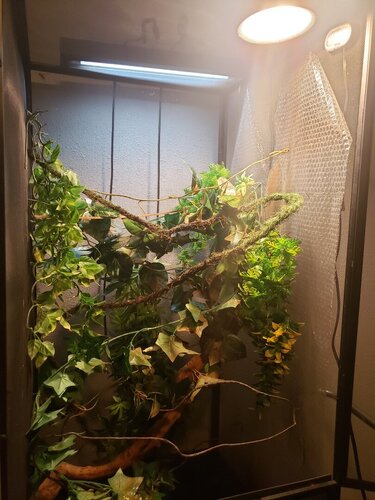I don't have much experience with parasites (fortunately), so unfortunately I can't comment on that issue. I do however see some improvements that can be made to your husbandry in particular the gutload you're using. Spinach is not recommended for gutloading since it is high in phosphorous. Better leafy greens to feed would be collard greens, kale, and mustard greens. The other fruits and you're feeding are totally fine. I haven't heard good things about cricket quenchers or cricket blocks but I don't know enough about them to fully comment on them.
This video goes into more detail about gutloading and different fruits and veggies you can use.
100 is pretty toasty for a basking temp. Can you get it down to 95?
Just a word of caution with misting as frequently as you are is to ensure the enclosure has time to dry out between misting sessions. Most keepers opt to have longer, less frequent misting sessions -- something like 3-5 minutes 2x/day. But I'm mindful that everyone is going to have a different misting schedule based on their chameleon's drinking response and climate.
Can you also post pics of your enclosure and chameleon?







